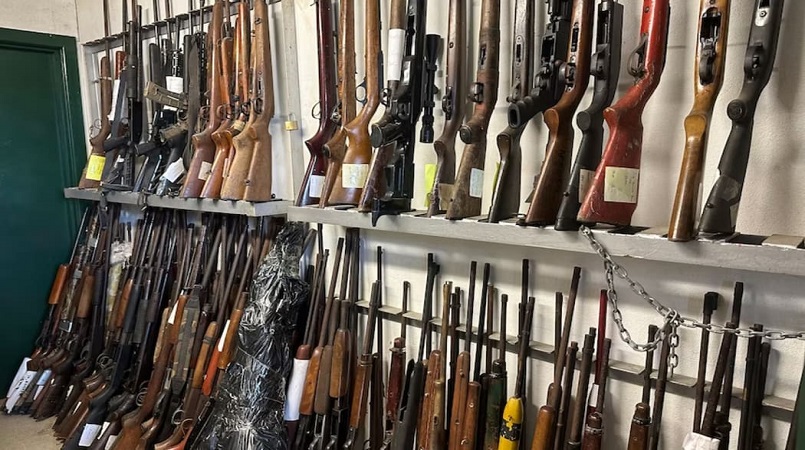
Sunday is always the most peaceful day of the week in Tonga.
The church bells ring all morning and the smell of the earth oven - known as Umu in Tongan - wafts through the streets.
Tongan farmer Tevita Sanft is a church regular.
The 56-year-old travels from his home to the chapel every Sunday with his family.
It's only a short 10-minute drive, but these days a special passenger comes along for the ride.
"When I go to church, I take my guns with me," he said.
Sanft owns livestock on his small seven-acre farm. And in the past, his firearms were used solely for his work around the property.
But over the past few years, he says they've become an integral part of protecting his family.
"I feel secure having a firearm," he said.
"There have been a lot of robberies in our neighbourhood. It's getting worse every day, that's why I sleep with a gun at arm's reach."
And Sanft is not alone.
In Tonga - like most Pacific countries - guns are not a common sight. Yet sentiment is changing, and many Tongans the ABC spoke to are softening their stance on the issue.
Tonga has a longstanding connection with the United States; more than 65,000 people with Tongan heritage live in the country. Some in the community say more violent crimes and drug use in the small island nation are forcing them to take the US approach.
They're getting armed - both legally and illegally.
"We see the [gun] problem in the bigger countries," Tonga's Deputy Police Commissioner Tevita Vailea told the ABC.
Yet, some Tongans are doing it regardless. The ABC is aware of a small underground black market for guns circulating in the community, with some families - and criminals - deciding to take matters into their own hands.
Deputy Commissioner Tevita Vailea said police were aware of the trend and were cracking down on those involved.
"In terms of allowing people to have firearms for self-defence purposes, we do not support that," he said.
"There's a link between illegal firearms and organised crime. But also, we're seeing a lot of accidents involving firearms. [There is a] lack of duty of care, and we've seen people lose family members due to accidental death."
